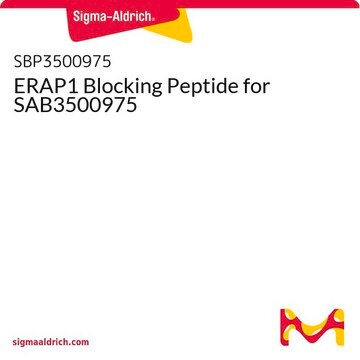Y1
85062807, mouse adrenal gland (cortex), Epithelial
Iniciar sesiónpara Ver la Fijación de precios por contrato y de la organización
About This Item
UNSPSC Code:
41106514
Productos recomendados
product name
Y1, 85062807
biological source
mouse adrenal gland (cortex)
growth mode
Adherent
karyotype
2n = 40
morphology
Epithelial
products
Steroid hormone
receptors
Not specified
technique(s)
cell culture | mammalian: suitable
relevant disease(s)
cancer
shipped in
dry ice
storage temp.
−196°C
Cell Line Origin
Mouse LAF1 adrenal cortex tumour
Cell Line Description
This cell line is a cloned strain from an adrenal cortex tumour cell line of a male LAF1 mouse. This strain was isolated after alternate passage in tumours in vivo and in cultures in vitro . The isolated clones are reported by the original depositor to produce steroid hormones at a high rate (4ug/mg/hr) under ACTH stimulation and cells round up within minutes of ACTH treatment. The hormone produced is reported to be ketosteroid with a hydroxy group at the carbon 20 rather than the usual ketosteroid configuration. However, a laboratory independent to the depositor has since (Dec 2000) tested this steroid producing property using the same method and after 1 hour of stimulation could report no rounding up or change in morphology and a very low cAMP measurement. This laboratory did find that the cells round up when exposed to forskolin (acting through adenylate cyclase) and the original depositor reported morphological changes in response to cholera toxin.
Application
Cloning and hormone studies
Culture Medium
Ham′s F10 + 2mM Glutamine + 15% Horse Serum (HS) + 2.5% Foetal Bovine Serum (FBS).
Subculture Routine
Split sub-confluent cultures (70-80%) 1:3 to 1:6 i.e. seeding at 2-4x10,000 cells/cm2 using 0.25% trypsin/EDTA; 5% CO2; 37°C.
Other Notes
Additional freight & handling charges may be applicable for Asia-Pacific shipments. Please check with your local Customer Service representative for more information.
Certificados de análisis (COA)
Busque Certificados de análisis (COA) introduciendo el número de lote del producto. Los números de lote se encuentran en la etiqueta del producto después de las palabras «Lot» o «Batch»
¿Ya tiene este producto?
Encuentre la documentación para los productos que ha comprado recientemente en la Biblioteca de documentos.
Nuestro equipo de científicos tiene experiencia en todas las áreas de investigación: Ciencias de la vida, Ciencia de los materiales, Síntesis química, Cromatografía, Analítica y muchas otras.
Póngase en contacto con el Servicio técnico



